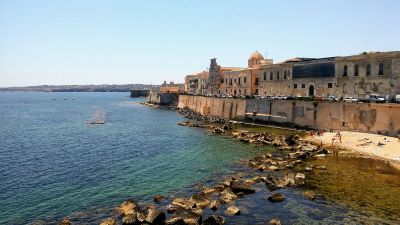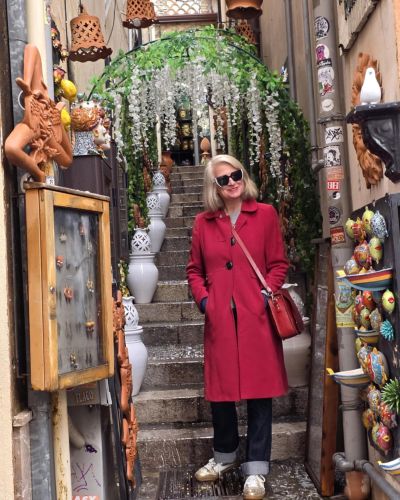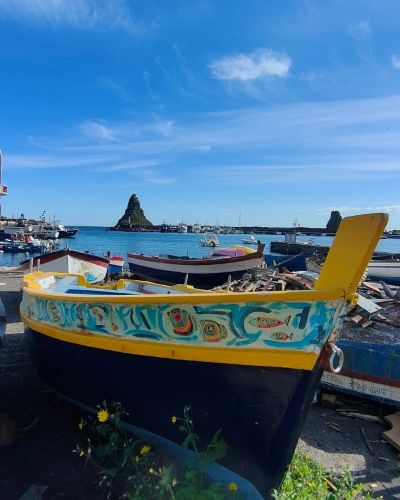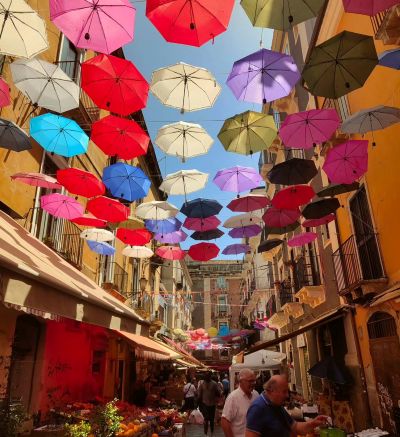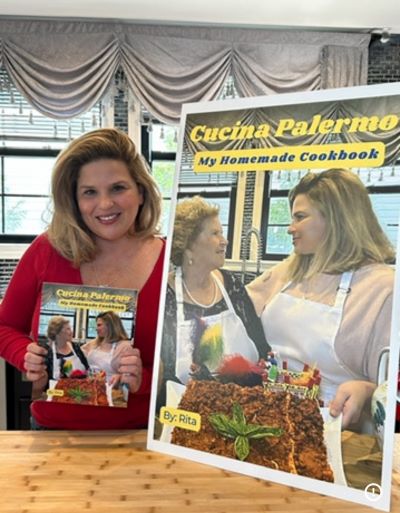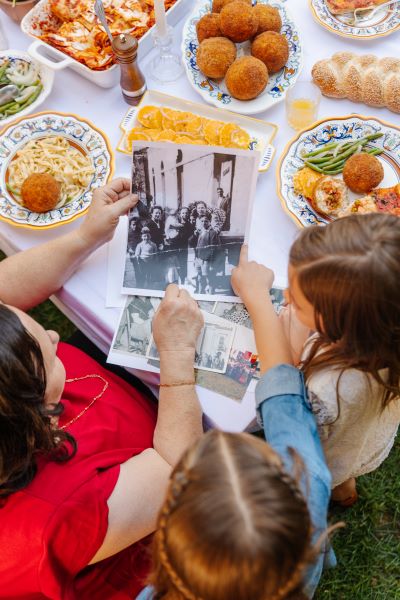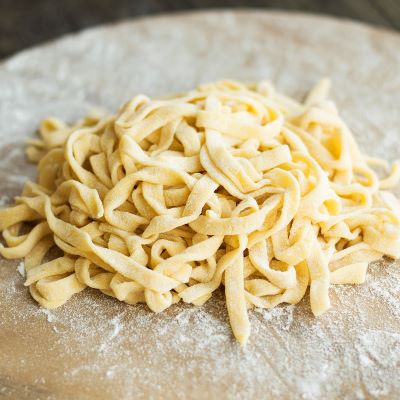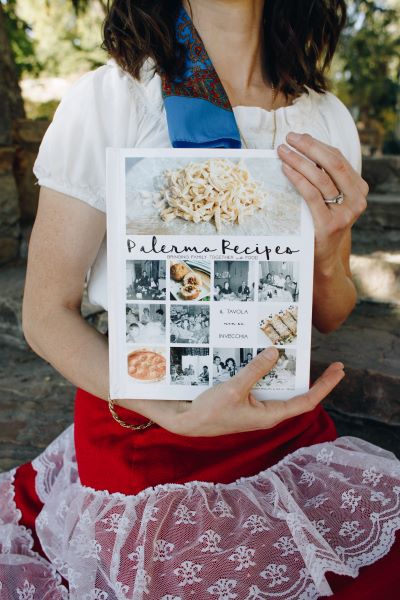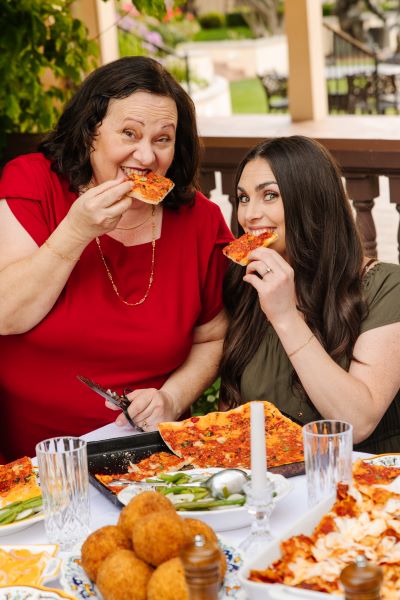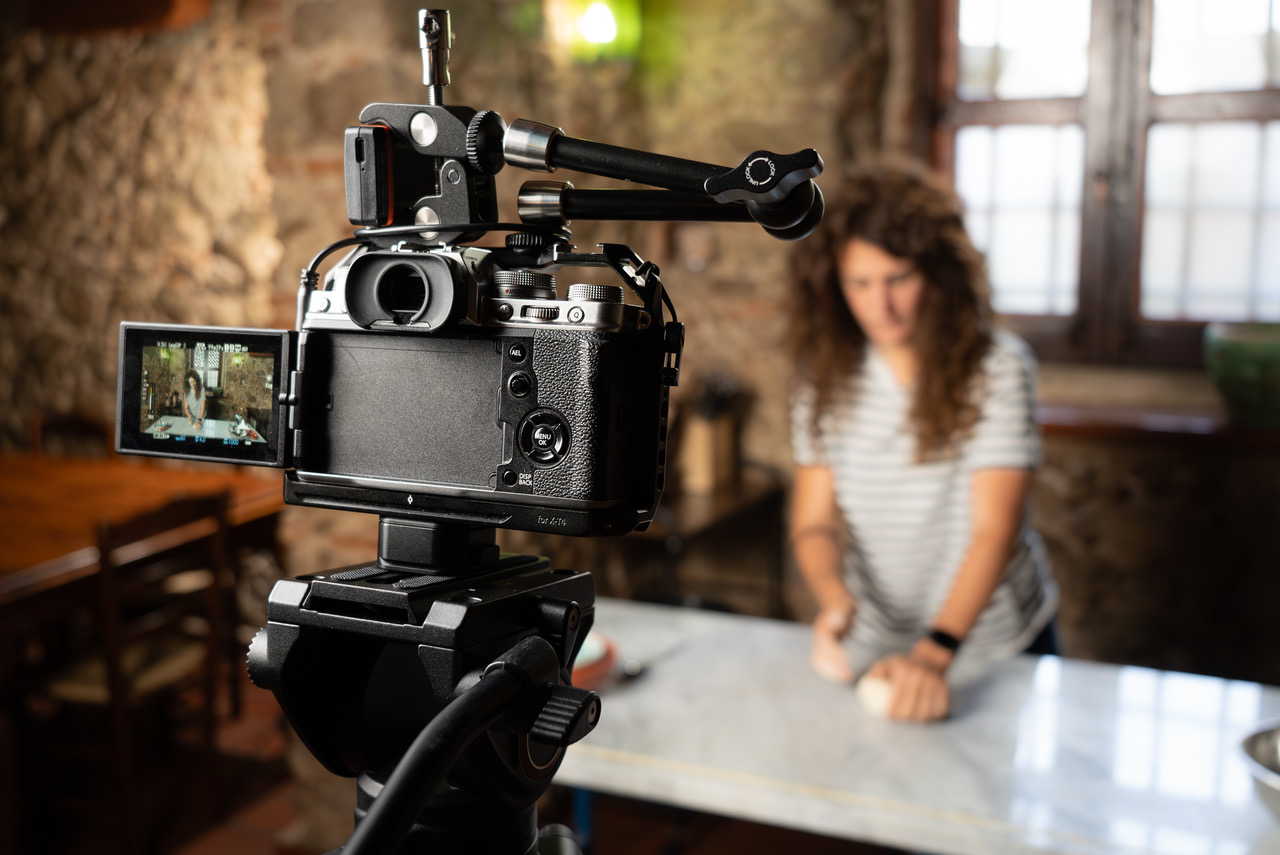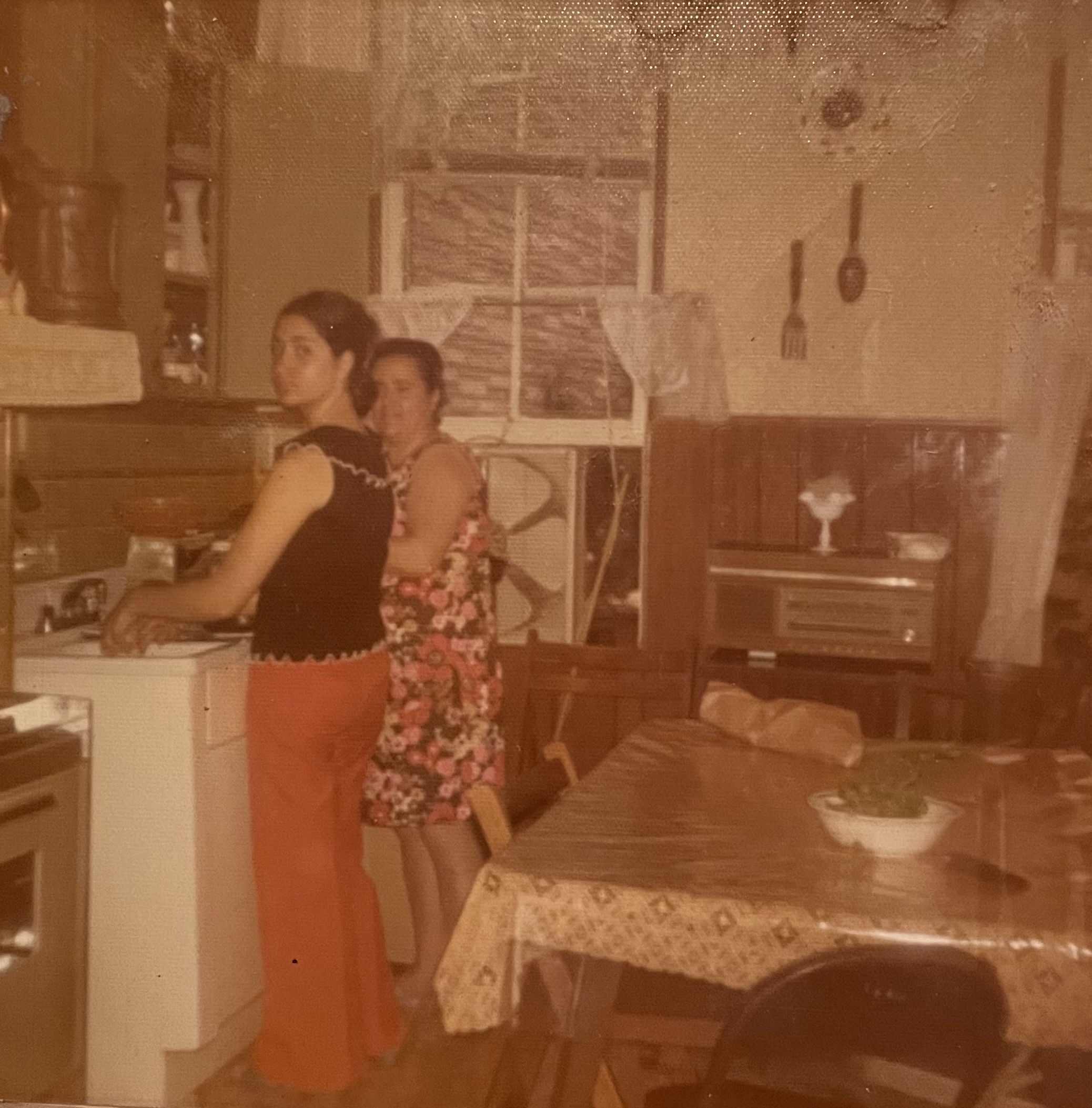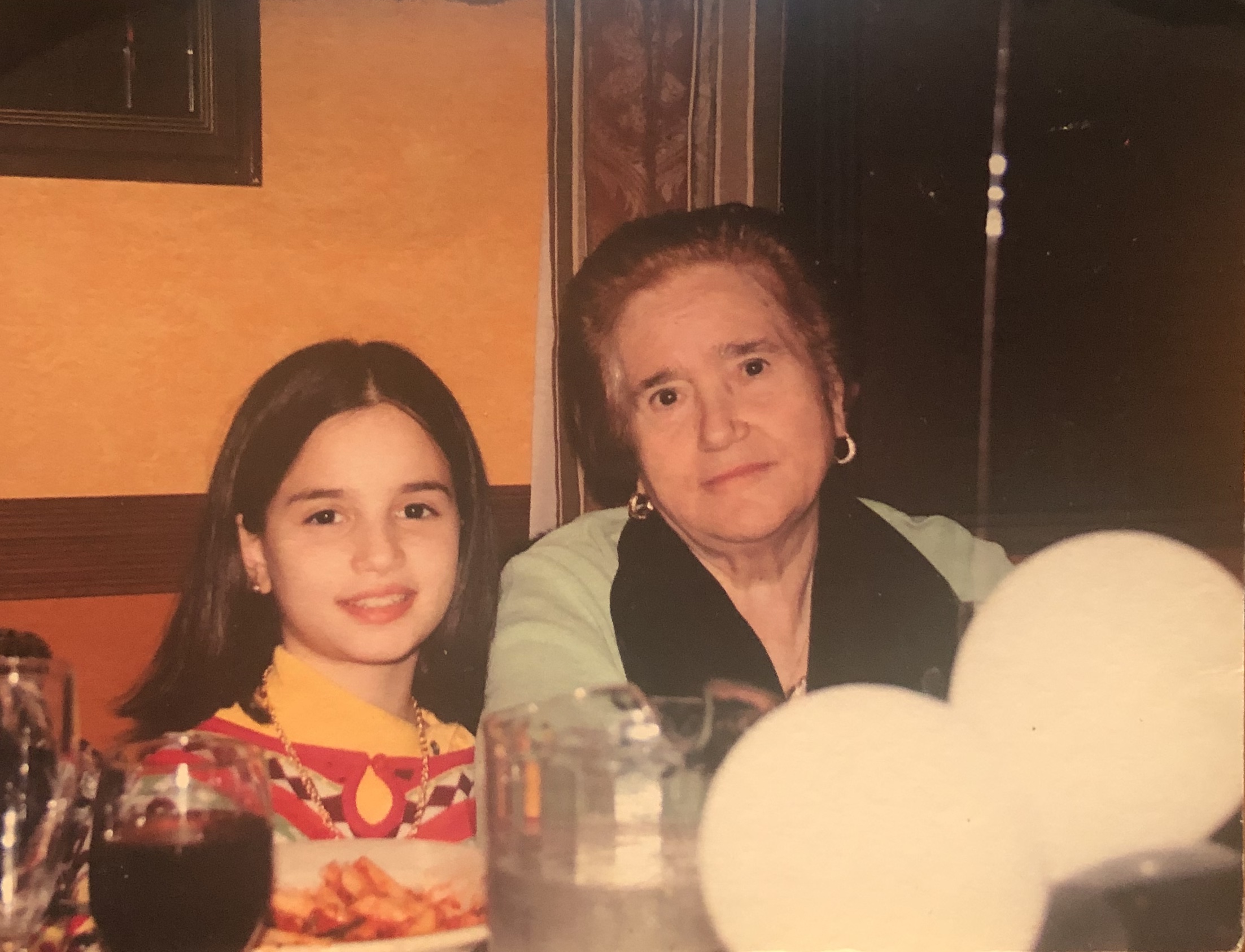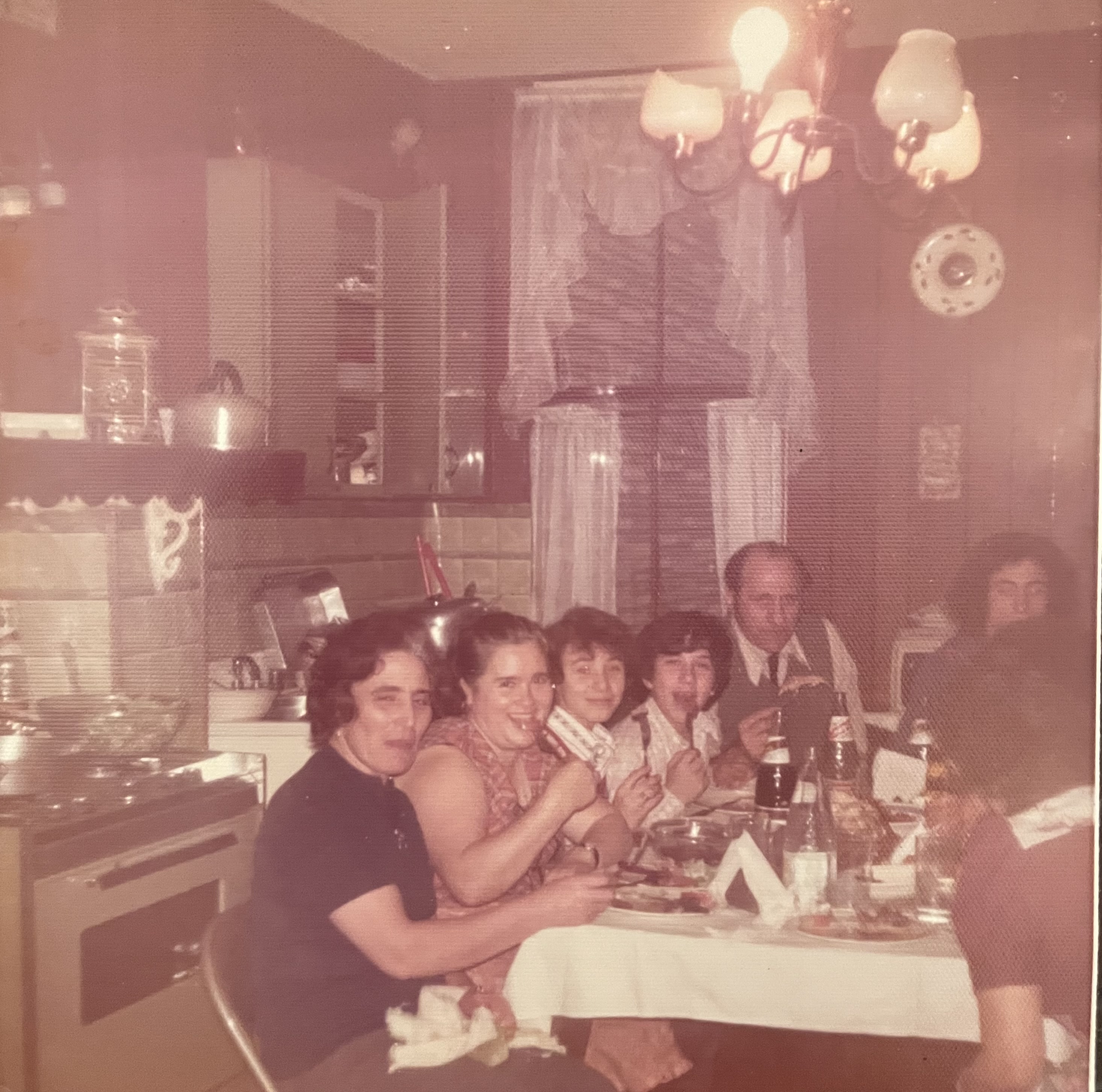As an Emmy-nominated international journalist, host, and producer, Eszter Vajda traveled the world to pursue stories and subjects. But it was actually a trip back home to Massachusetts, where the Hungary-native grew up, that led her to Sicily.
"There are no coincidences," Eszter reflects.
She had interviewed Merrimack Valley-based radio host Tom Zappala of The Sicilian Corner a few times, including for a story on Lawrence, Massachusetts' Feast of The Three Saints (patterned after Trecastagni, Sicily's Saints Alfio, Filadelfo, and Cirino Festival).
One day, Tom called to see if Eszter could fill in as host for his show. The scheduled guest was Tom's brother, Alfred M. Zappala, a Northeastern Law School professor, who had just returned from Sicily.
"I really had no idea what Sicily was about," Eszter says. "We did an hour-long interview on the radio. I've always been very passionate about history, so it struck a chord with me."
Alfred described Sicily's important strategic location in the Mediterranean and the many peoples and cultures that passed through and influenced the island. And Eszter wanted to know more.
She invited him to appear on her TV show. The interview ended, the lights and microphone were off, and the crew was ready to go home. But Eszter and Alfred kept talking.
He invited her to lunch, and they began discussing a plan for Eszter to spend a month making a few videos in Sicily.
Eszter arrived in Sicily in June 2014, intending to stay four weeks and produce seven videos. She ended up staying five months, and the videos took on a life of their own. The couple split time between Sicily and the U.S. while Alfred was still teaching. He retired in 2016, and they officially became island residents.
Today, you can catch Eszter and Alfred's popular video series, You, Me & Sicily!, on YouTube, sign up for one of their Sicily tours, or consult the couple for your own Sicilian vacation. Additionally, the two are deeply involved with the Sicilian Project, which raises money for academic grants to provide English-language education to students in Sicily—Alfred as Chairman of the Board and Founder, and Eszter as Public Relations & Social Media Director.
Eszter shared more about their work and what she ultimately hopes to give back.
Ortygia, Sicily
How do you approach capturing the essence of Sicily in your video series?
We literally zigzag the island. We've covered the island up and down. There are very few must-see places in Sicily that I haven't been to. And we don't mind going back.
Festivals are a very important part of Sicilian culture. Every town has its own patron saint, and it's a big deal. It's multi-generational; the kids, parents, and grandparents go together. I went to the Three Saints festival in Lawrence before I went to the festival in Trecastagni. The religious feel, the excitement, the fireworks… It's very different here. So we do that, of course.
There's a lot of food and cooking because you've got to have that. Then maybe there's an event we'll cover, like an art show or music. We'd like to be very diversified.
Inevitably, something, like a natural disaster in Etna, happens, and we cover it. Obviously, we were doing that during COVID.
We do a lot with the history. We're very fortunate to be aligned with a lot of professors from the University of Catania, and we've had [retired professor of Italian and Chairman of the Department of Modern Foreign Languages at St. John's University] Gaetano Cipolla on at least a half-dozen times. So, a lot of that, sharing the history and the culture, is really just providing what we think would be good information for the people.
For example, we published a video about the new Italian citizenship rules because Al does dual citizenship. There were 200 comments on it. Italian citizenship is trending on Google. So we're focused on that. We stay on top of these types of things.
We take people to the markets and introduce them to the people, not just the produce. We feature the vineyards, and you meet the family behind the wine. We do that a lot. We feature a lot of family-run businesses. There's even a playlist. "Family-Run Businesses." That's very important.
Eszter in Taormina
What makes your private and group tours unique?
What makes them unique is that we live here. You'll go to places we frequent. We take you to restaurants where the owners are our friends. The owners of the hotel you're staying in are our best friends. We've vetted the vineyards and have been going there for years and years.
We have made incredible connections. We have drivers and guides and hotels all over the island. We visit vineyards, do olive oil tastings, go to the Sicilian cart museum, and ride boats. We offer a basket of experiences.
For the private tours, I work one-on-one with the families multiple times to make sure that it's what the family wants. And 99.9% of the time when a family comes, it's because they want to come to Sicily and see an ancestral home. So those are some very special tours.
We keep our group tours very small, so they're very personalized and customized.
A colorfully decorated boat in Aci Trezza
Tell us more about the Sicilian Project, which Alfred founded.
English as a second language is a huge problem in Sicily. Alfred wrote in one of his books (and I'm not quoting him exactly), "If someone gave me a donation, I would start some kind of an English-as-a-second-language language program that would be free for Sicilian kids." Someone who read that book called and said, "I'm going to send you a check."
This man, Steve Carbone, who is still a good friend of ours, sent Al a $10,000 check. And Al said, "Oh my God, I've got to do something." So he made it a 501(c)(3).
We've had very regular classes. We had one in Brolo, we had one in Bagheria outside of Palermo, and we have them in Canicattì, Aci Trezza, and Aci Catena. We hold these classes, and they run as sort of summer camps. We play (depending on the level of the kids), we sing songs, and have conversation.
When COVID hit and we had to cancel two classes, what we started doing was handing out money to the churches. So for about two years, we did that for Easter and Christmas. Some churches had more need than others. Then, we literally restarted the Sicilian Project.
I'm so thankful we're able to have classes now. We had four classes this past fall, and we started an adult class where Sicilian professionals who want to improve their English come and do that.
We just finished a class with 15 kids and six adults, and we were able to get guys from Naval Air Station Sigonella to volunteer because they have to do a number of hours of volunteering. So we had native speakers. I did class, and Alfred taught.
When I came here, I felt like Sicily was like a blanket. And then Sicily gave me so much beauty, food, and nourishment, emotionally and physically, that I was hellbent on being a very active member of the Sicilian Project. And not just being a board member, but actively giving back. We are very, very active.
A rainbow of umbrellas floats above a street in Catania.
What do you hope to share through your work?
First of all, we started the show to dispel stereotypes and myths about Sicilians and educate people about Sicily's deep and wide contribution—not just to Europe but to civilization.
Bringing people to their ancestral home is probably one of the most gratifying things. Hearing the oohs and ahhs of people on my tours when they're out seeing something beautiful or tasting something. When you are in Sicily, it is an experience for all the senses, right? You're emotionally overwhelmed by all the senses that are stimulated. So, that's what I hope my work does. I hope it inspires and educates more than anything.
If you enjoyed this article, consider subscribing to my newsletter for more content and updates!

